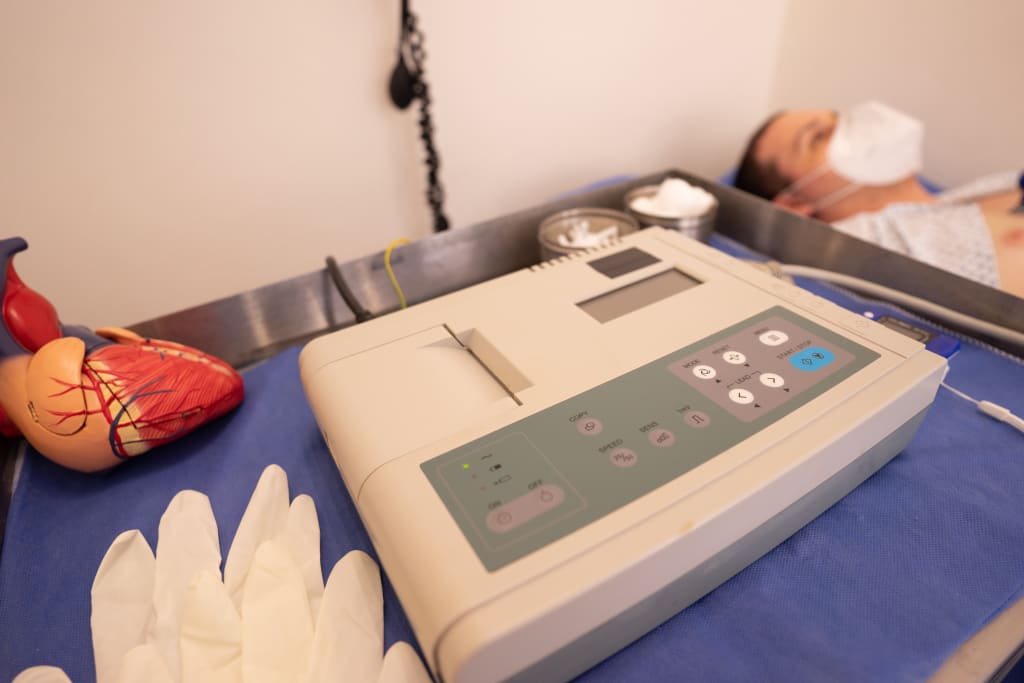Tips to Prevent Heart Disease: A Comprehensive Guide
Heart Attack

Heart disease remains one of the leading causes of mortality worldwide. However, adopting a healthy lifestyle and making informed choices can significantly reduce the risk of developing heart disease. This article aims to provide you with practical tips and strategies to prevent heart disease and maintain a strong cardiovascular system.
Balanced Diet:
Maintaining a balanced diet is crucial for heart health. Incorporate the following guidelines into your eating habits:
a) Consume nutrient-rich foods: Include a variety of fruits, vegetables, whole grains, lean proteins, and healthy fats in your diet. Avoid processed foods, excessive salt, and sugary snacks.
b) Limit saturated and trans fats: Opt for lean meats, poultry, fish, and plant-based sources of protein. Reduce the intake of saturated and trans fats found in fatty meats, full-fat dairy products, and fried foods.
c) Choose healthy cooking methods: Bake, grill, or steam your food instead of frying it. This helps preserve nutrients and reduce the consumption of unhealthy fats.
d) Control portion sizes: Be mindful of portion sizes to avoid overeating and maintain a healthy weight.
Regular Exercise:
Engaging in regular physical activity is essential for maintaining a healthy heart. Consider the following:
a) Aerobic exercises: Aim for at least 150 minutes of moderate-intensity aerobic exercises such as brisk walking, cycling, or swimming every week. Alternatively, engage in 75 minutes of vigorous-intensity activities like running or high-intensity interval training (HIIT).
b) Strength training: Include strength training exercises at least two days a week to build muscle, increase metabolism, and improve cardiovascular health.
c) Incorporate physical activity into daily routine: Opt for stairs instead of elevators, walk or cycle for short distances, and take regular breaks from prolonged sitting.
d) Consult a healthcare professional: If you have any existing health conditions, consult with a healthcare professional to determine the most suitable exercise routine for you.
Manage Stress Levels:
Chronic stress can contribute to heart disease. Implement the following techniques to manage stress effectively:
a) Relaxation techniques: Practice deep breathing exercises, meditation, yoga, or mindfulness to promote relaxation and reduce stress levels.
b) Time management: Prioritize tasks, delegate when possible, and learn to say no to excessive commitments. This can help alleviate stress and create a more balanced lifestyle.
c) Engage in enjoyable activities: Participate in hobbies, spend time with loved ones, and engage in activities that bring joy and relaxation.
d) Seek support: Reach out to friends, family, or professionals for emotional support when needed. Talking about your concerns can help alleviate stress and promote overall well-being.
Quit Smoking and Limit Alcohol Consumption:
Smoking and excessive alcohol consumption significantly increase the risk of heart disease. Consider the following steps:
a) Quit smoking: Seek professional help, join support groups, or use nicotine replacement therapy to quit smoking. Quitting smoking has immediate and long-term benefits for heart health.
b) Limit alcohol intake: If you choose to drink alcohol, do so in moderation. For men, the recommended limit is two drinks per day, while for women, it is one drink per day. Excessive alcohol consumption can lead to high blood pressure and other heart-related complications.
Regular Health Check-ups:
Regular health check-ups can detect potential risk factors and allow for early intervention. Follow these recommendations:
a) Blood pressure monitoring: Regularly check your blood pressure and maintain it within the normal range (below 120/80 mmHg).
b) Cholesterol screening: Get your cholesterol levels checked regularly, and if elevated, take necessary steps to manage them through lifestyle changes or medication.
c) Blood sugar monitoring: Regularly monitor your blood sugar levels, especially if you have diabetes or prediabetes. Keep your blood sugar levels within the target range recommended by your healthcare provider.
d) Maintain a healthy weight: Keep your body mass index (BMI) within the healthy range by following a balanced diet and exercising regularly.
Conclusion:
By adopting a healthy lifestyle and implementing the tips outlined above, you can significantly reduce the risk of developing heart disease. Remember to prioritize a balanced diet, engage in regular exercise, manage stress effectively, quit smoking, limit alcohol consumption, and undergo regular health check-ups. Prevention is key when it comes to heart disease, and small changes in daily habits can have a profound impact on your cardiovascular health. Make your heart health a top priority, and enjoy a longer, healthier life.
Maintain a Healthy Weight:
Maintaining a healthy weight is vital for heart health. Excess weight puts strain on the heart and increases the risk of developing various cardiovascular conditions. Consider the following tips:
a) Calculate your BMI: Use a BMI calculator to determine your body mass index. Aim to keep it within the healthy range (18.5 to 24.9).
b) Portion control: Be mindful of portion sizes to avoid overeating. Use smaller plates, chew slowly, and listen to your body's hunger and fullness cues.
c) Balanced calorie intake: Consume a balanced number of calories that align with your age, gender, and activity level. Avoid excessive calorie intake, especially from sugary beverages and high-fat foods.
d) Regular meal patterns: Establish regular meal times and avoid skipping meals. This helps regulate metabolism and prevents unhealthy snacking.
Maintain Healthy Blood Pressure:
High blood pressure (hypertension) is a significant risk factor for heart disease. Take the following steps to maintain healthy blood pressure levels:
a) Monitor blood pressure: Regularly check your blood pressure at home or during routine medical visits.
b) Reduce sodium intake: Limit your consumption of high-sodium foods such as processed snacks, canned foods, and fast food. Opt for fresh, whole foods and use herbs and spices for flavor instead of salt.
c) Eat potassium-rich foods: Include potassium-rich foods like bananas, oranges, spinach, and sweet potatoes in your diet. Potassium helps regulate blood pressure.
d) Limit caffeine and alcohol: Excessive caffeine and alcohol consumption can raise blood pressure. Limit your intake or opt for healthier alternatives like herbal tea and non-alcoholic beverages.
Get Sufficient Sleep:
Adequate sleep is essential for overall health, including heart health. Poor sleep quality and duration have been linked to an increased risk of heart disease. Consider the following tips for better sleep:
a) Establish a routine: Set a consistent sleep schedule by going to bed and waking up at the same time each day, even on weekends.
b) Create a sleep-friendly environment: Make your bedroom conducive to sleep by keeping it dark, quiet, and at a comfortable temperature.
c) Limit electronic device use: Avoid electronic screens, such as smartphones and tablets, before bedtime as they can interfere with sleep quality.
d) Practice relaxation techniques: Engage in calming activities before bed, such as reading a book, taking a warm bath, or practicing relaxation exercises, to promote better sleep.
Stay Hydrated and Limit Sugary Beverages:
Proper hydration is essential for maintaining optimal heart health. Consider the following tips:
a) Drink plenty of water: Aim to drink at least 8 cups (64 ounces) of water per day to stay adequately hydrated.
b) Limit sugary beverages: Avoid or minimize the consumption of sugary drinks like soda, fruit juices, and energy drinks. These beverages can contribute to weight gain and increase the risk of heart disease.
c) Opt for healthier alternatives: Choose water, herbal tea, or infused water with fresh fruits and herbs as refreshing and hydrating options.
d) Be mindful of caffeine intake: Excessive caffeine intake can lead to dehydration. Moderate your consumption of caffeinated beverages like coffee and tea.
Conclusion:
Preventing heart disease requires a holistic approach that encompasses various lifestyle choices and habits. By following these tips, such as maintaining a balanced diet, engaging in regular exercise, managing stress, quitting smoking, limiting alcohol consumption, undergoing regular health check-ups, maintaining a healthy weight, managing blood pressure, getting sufficient sleep, and staying hydrated, you can significantly reduce your risk of heart disease and promote a healthy heart for years to come. Remember, small changes can make a big difference when it comes to your heart health.
About the Creator
Ishtiaq tahir
my name is IshtiaqTahir I am professional content writer and astrologer,numerologist.






Comments
There are no comments for this story
Be the first to respond and start the conversation.